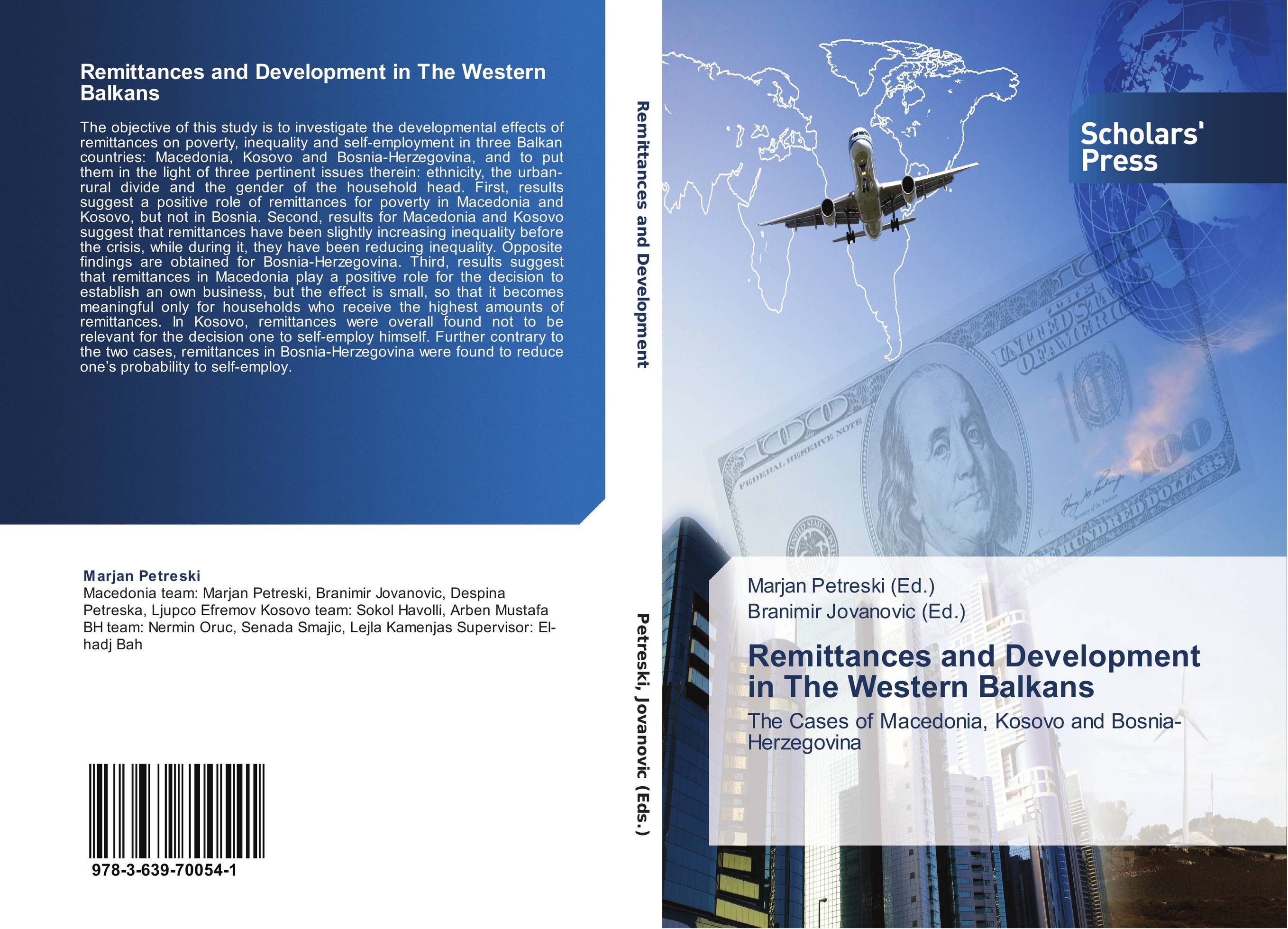| Поиск по каталогу |
|
(строгое соответствие)
|
- Профессиональная
- Научно-популярная
- Художественная
- Публицистика
- Детская
- Искусство
- Хобби, семья, дом
- Спорт
- Путеводители
- Блокноты, тетради, открытки
Remittances and Development in The Western Balkans. The Cases of Macedonia, Kosovo and Bosnia-Herzegovina

В наличии
| Местонахождение: Алматы | Состояние экземпляра: новый |

Бумажная
версия
версия
Автор: Marjan Petreski and Branimir Jovanovic
ISBN: 9783639700541
Год издания: 2013
Формат книги: 60×90/16 (145×215 мм)
Количество страниц: 148
Издательство: Scholars' Press
Цена: 30749 тг
Положить в корзину
| Способы доставки в город Алматы * комплектация (срок до отгрузки) не более 2 рабочих дней |
| Самовывоз из города Алматы (пункты самовывоза партнёра CDEK) |
| Курьерская доставка CDEK из города Москва |
| Доставка Почтой России из города Москва |
Аннотация: The objective of this study is to investigate the developmental effects of remittances on poverty, inequality and self-employment in three Balkan countries: Macedonia, Kosovo and Bosnia-Herzegovina, and to put them in the light of three pertinent issues therein: ethnicity, the urban-rural divide and the gender of the household head. First, results suggest a positive role of remittances for poverty in Macedonia and Kosovo, but not in Bosnia. Second, results for Macedonia and Kosovo suggest that remittances have been slightly increasing inequality before the crisis, while during it, they have been reducing inequality. Opposite findings are obtained for Bosnia-Herzegovina. Third, results suggest that remittances in Macedonia play a positive role for the decision to establish an own business, but the effect is small, so that it becomes meaningful only for households who receive the highest amounts of remittances. In Kosovo, remittances were overall found not to be relevant for the decision one to self-employ himself. Further contrary to the two cases, remittances in Bosnia-Herzegovina were found to reduce one’s probability to self-employ.
Ключевые слова: remittances, Development, Western Balkans



